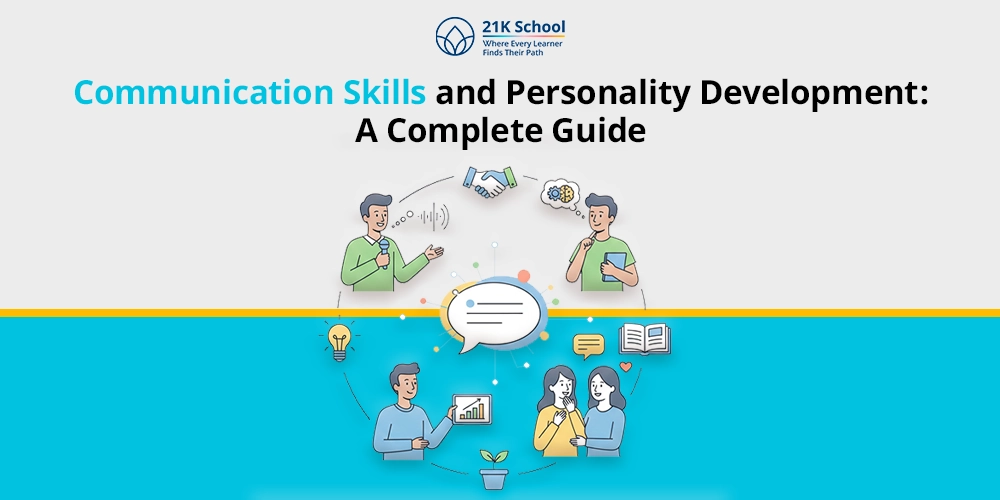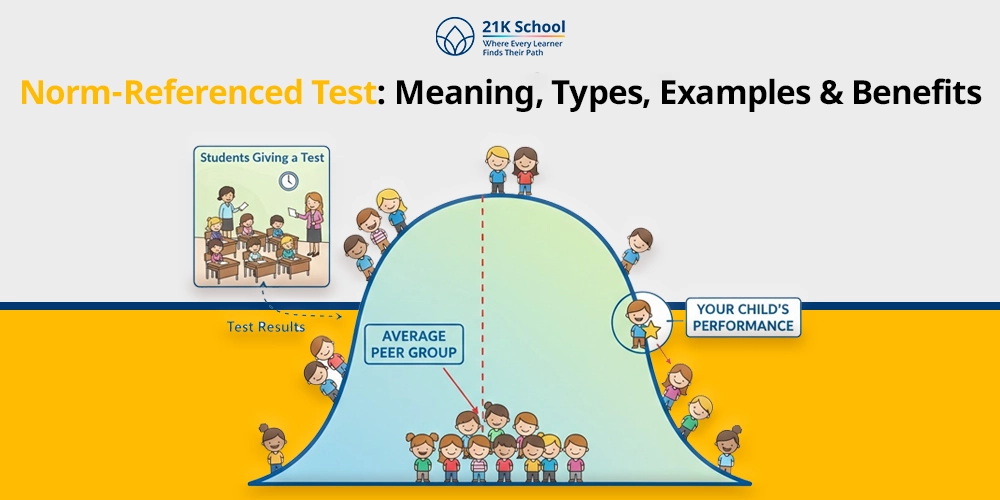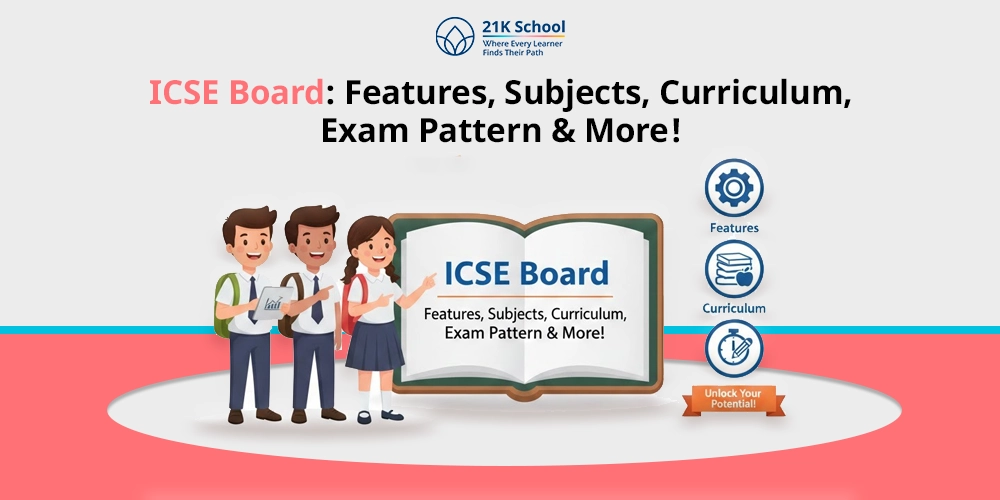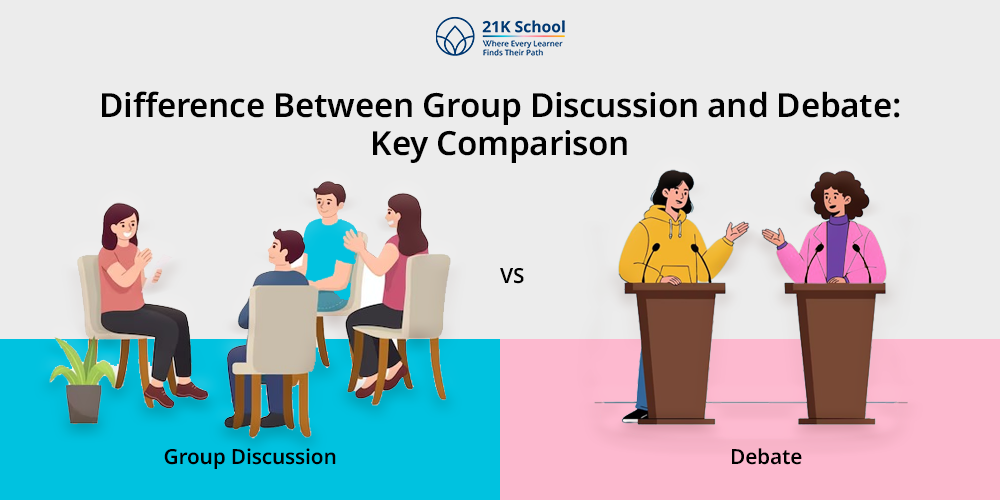
Communication is a foundation of learning and to enhance it, children from a young age participate in different activities.
Activities such as group discussion and debate are some of the ideal ways conducted by educational institutions.
However, both may look similar but have various differences. Understanding the difference between group discussion and debate is helpful in improving academic growth and communication skills .
Mentioned below is a comparison between group discussion and debate. Also explore how it contributes to students’ learning.
Table of Contents
What Is a Group Discussion (GD)?
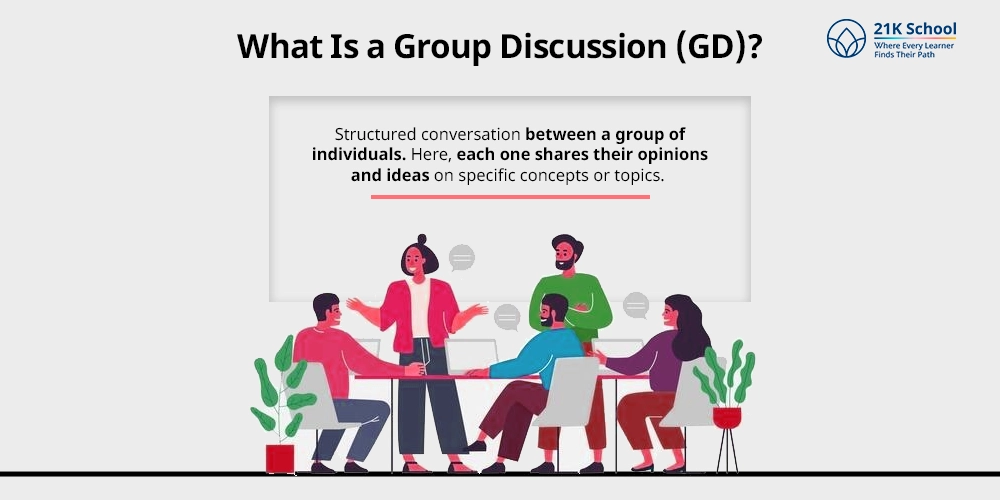
Group discussion also known as GD in short. Structured conversation between a group of individuals. Here, each one shares their opinions and ideas on specific concepts or topics.
Group discussions providing information, analysing each other’s thoughts, and concluding results.
The approach is used to fulfill both academic and professional needs like interviews.
In academics, facilitators help to improve communication skills and professionally recruiters evaluate candidate’s skills.
What Is a Debate?
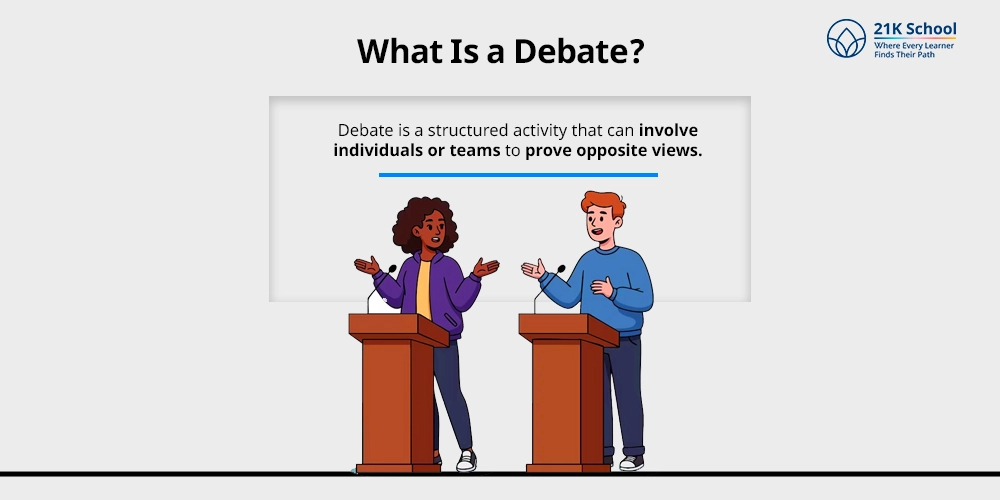
Debate is a structured activity that can involve individuals or teams to prove opposite views.
The main objective of debate is to convince the audience, opponents and judges that their facts, logics and point of view is more accurate and reliable.
Debates are majorly conducted in places like schools, colleges, interviews, and political settings.
Group Discussion Vs Debate: 10 Key Differences
Mentioned table is a comparison between group discussion and debate:
| S.No. | Aspects | Group Discussion | Debate |
| 1. | Meaning | Group discussion is an open-ended discussion between various participants to share and analyse ideas on a particular topic. | Debate is a formal argument between two opposing sides presenting contrasting viewpoints on a common topic. |
| 2. | Goal | The goal of group discussion is to exchange ideas, explore perspectives, and arrive at a collective understanding or solution. | The goal of debate is to convince the audience or judges that one side’s opinion is correct. |
| 3. | Structure | Group discussions are flexible, interactive, and less rule-bound. | Debates are structured with fixed turns, time limits, and rules. |
| 4. | Nature | It is collaborative and analytical in nature. | It is competitive and argumentative in nature. |
| 5. | Approach | Group discussion encourages students in consensus-building and teamwork. | While debate encourages assertiveness and persuasive reasoning. |
| 6. | Outcome | It focuses on shared conclusions or broader understanding. | Debate focuses on the results in a winning or losing side. |
| 7. | Number of Participants | The number of participants in group discussions are around 4 to 10. | In debate 2 or more speakers per side (individuals or teams). |
| 8. | Tone | Here, the tone is polite, respectful, inclusive, and each individual shares their opinion without chaos. | While in debate the tone is assertive, passionate, and confrontational at times. |
| 9. | Evaluation Criteria | Evaluation criteria used in group discussion are communication, teamwork, analytical ability, and listening skills. | In debate, evaluation criteria used are logic, evidence, clarity, and ability to counter arguments. |
| 10. | Moderator’s Role | Roles in group discussion include facilitating discussion, observing, and evaluating. | In debate, the role includes controlling time, enforces rules, and ensures fairness. |
1. Meaning
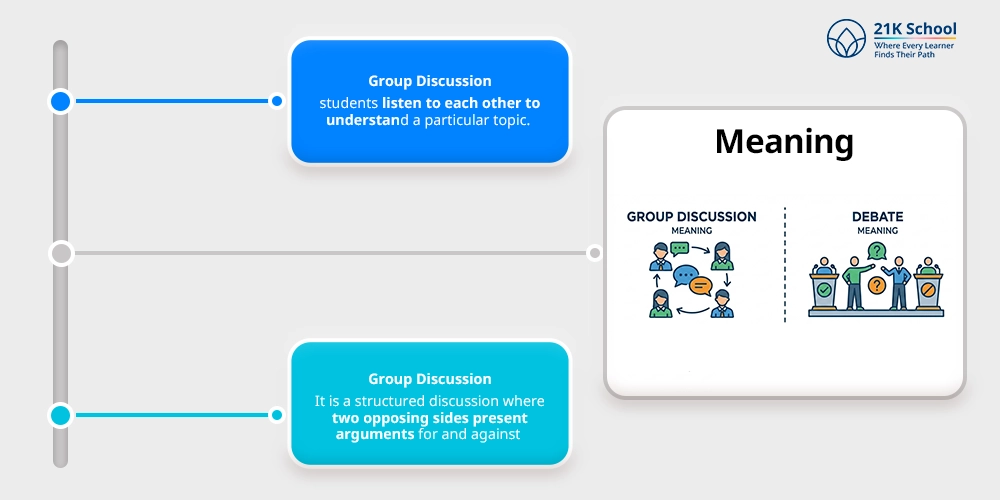
Group Discussion: It is effective because of its exchanging of ideas and concepts. Here students listen to each other to understand a particular topic.
Debate: The debate is a structured discussion where two opposing sides present arguments for and against a specific topic in front of people.
2. Goal
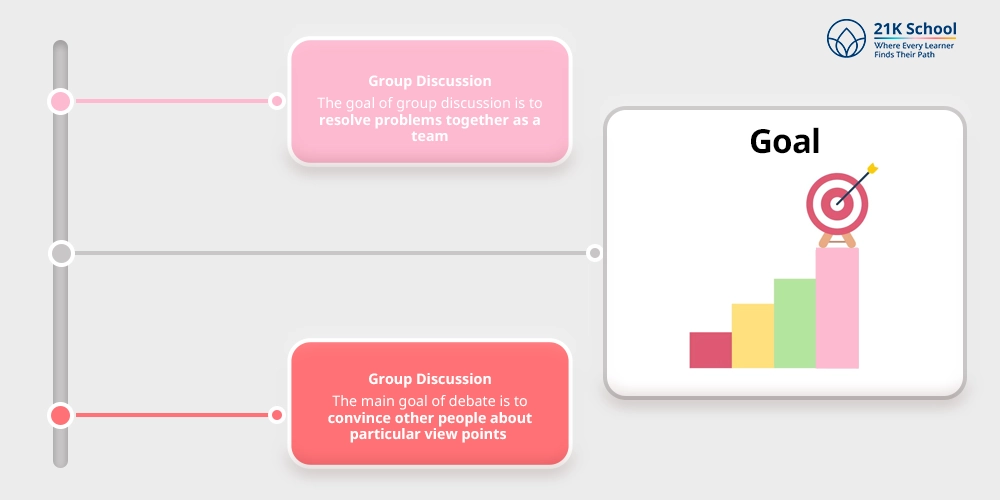
Group Discussion: The goal of group discussion is to resolve problems together as a team to learn in a better environment.
Debate: The main goal of debate is to convince other people about particular view points through researched facts and data.
3. Structure
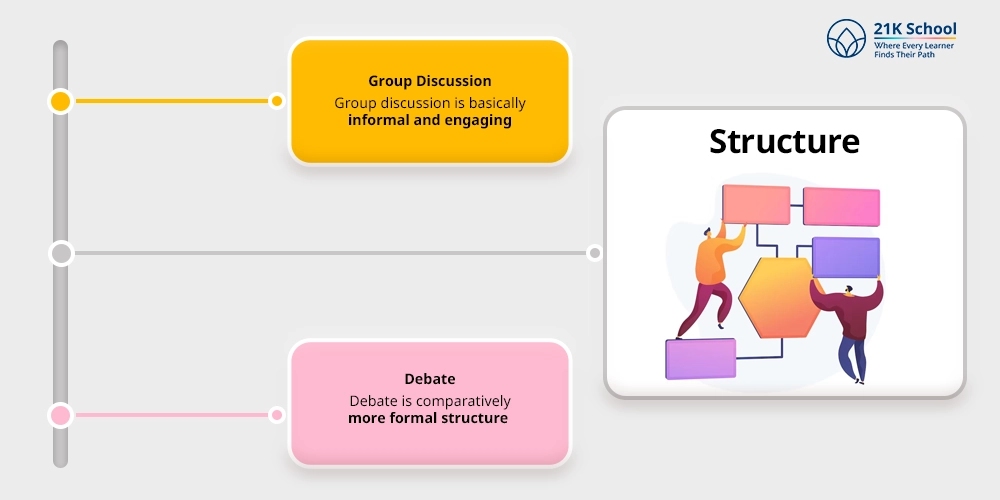
Group Discussion: The structure of group discussion is basically informal and engaging where anyone can share their opinion without any limitations.
Debate: Debate is comparatively more formal structure and sequenced by the organiser to and ensure a good flow of opening statement mid and conclusion.
4. Nature
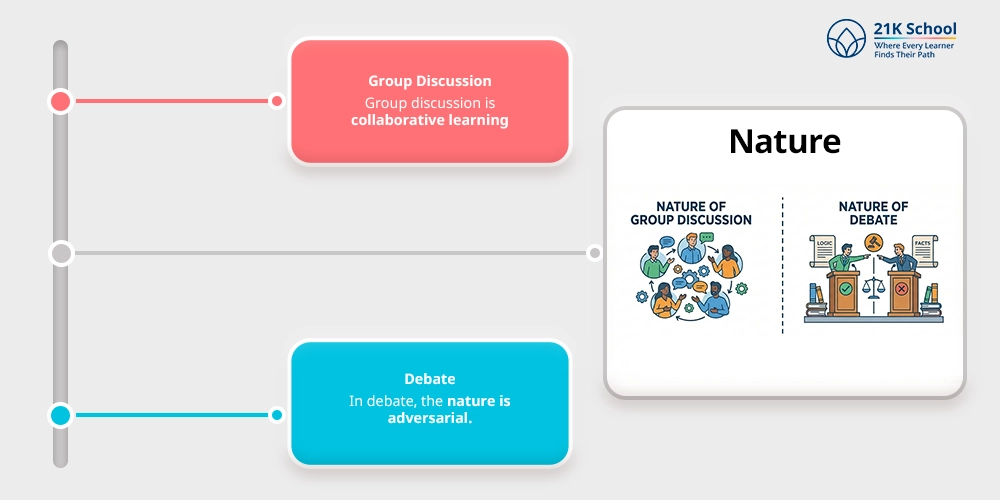
Group Discussion: Group discussion is collaborative learning where each individual is able to participate anytime.
Debate: In debate, the nature is adversarial. Each team tries to explain their part with logic and facts for justification.
5. Approach
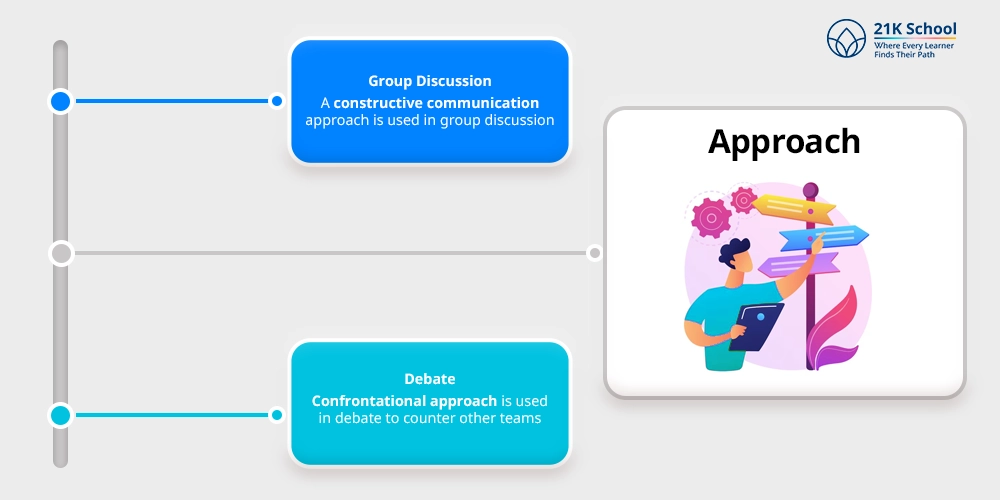
Group Discussion: A constructive communication approach is used in group discussion where candidates work on each other’s ideas.
Debate: Confrontational approach is used in debate to counter other teams.
6. Outcome
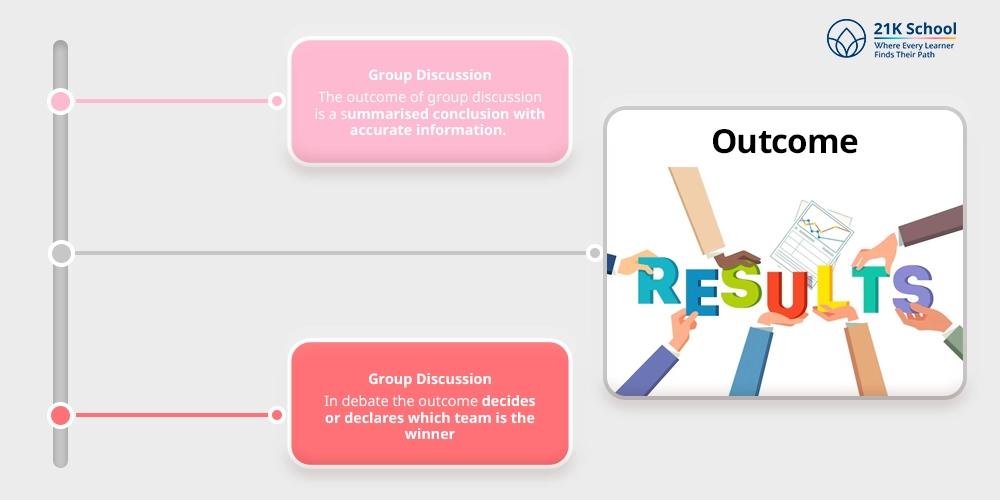
Group Discussion: The outcome of group discussion is a summarised conclusion with accurate information.
Debate: In debate the outcome decides or declares which team is the winner through the judges decision, audience vote and conclusion.
7. Number of Participants
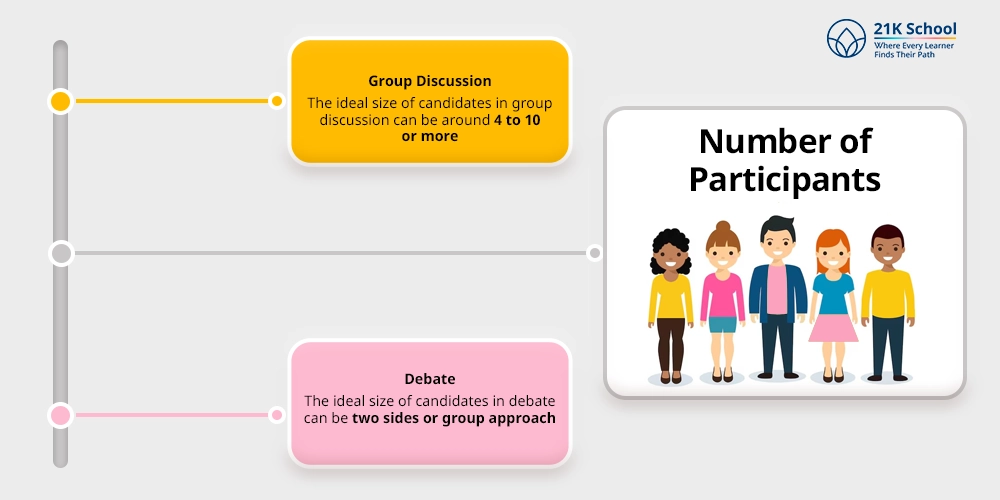
Group Discussion: The ideal size of candidates in group discussion can be around 4 to 10 or more.
Debate: The ideal size of candidates in debate can be two sides or group approach.
8. Tone
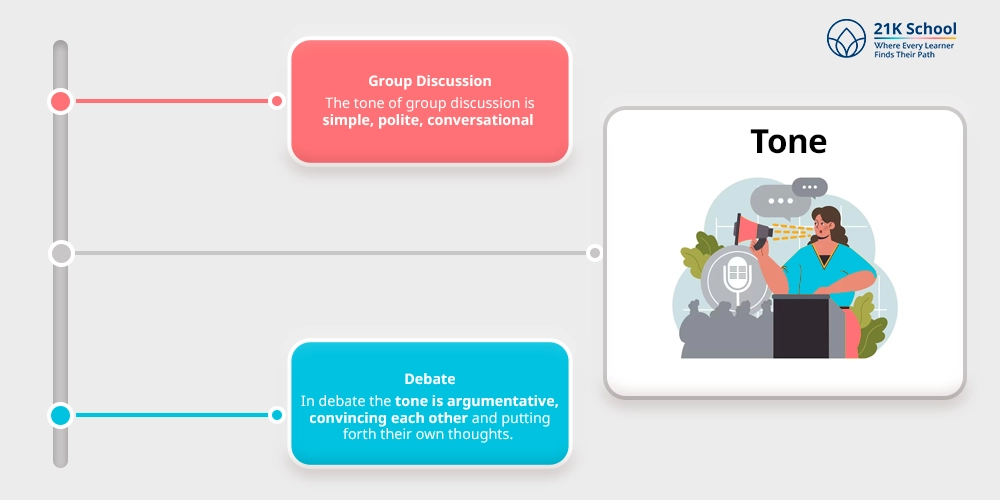
Group Discussion: The tone of group discussion is simple, polite, conversational and learning based.
Debate: In debate the tone is argumentative, convincing each other and putting forth their own thoughts.
9. Evaluation Criteria
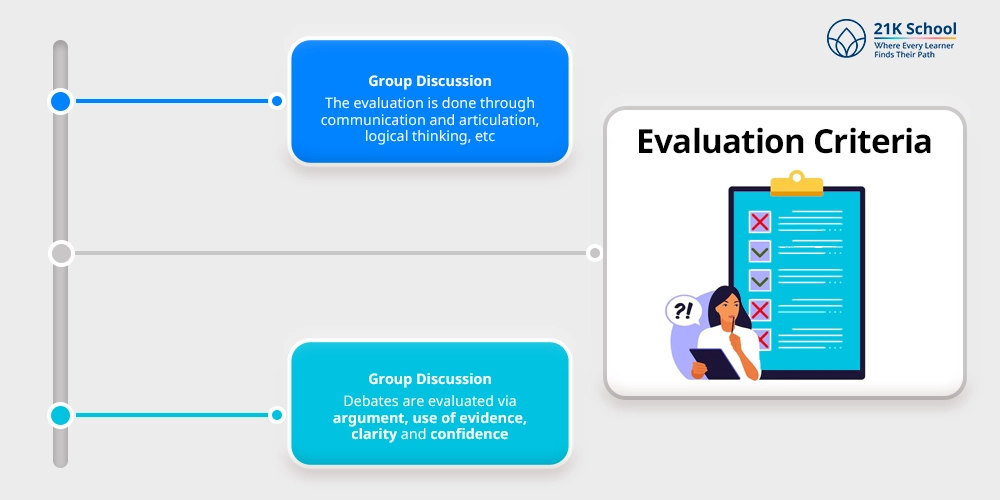
Group Discussion: Here, the evaluation is done through communication and articulation, logical thinking, teamwork and leadership etc.
Debate: Debates are evaluated via argument, use of evidence, clarity and confidence.
10. Moderator’s Role
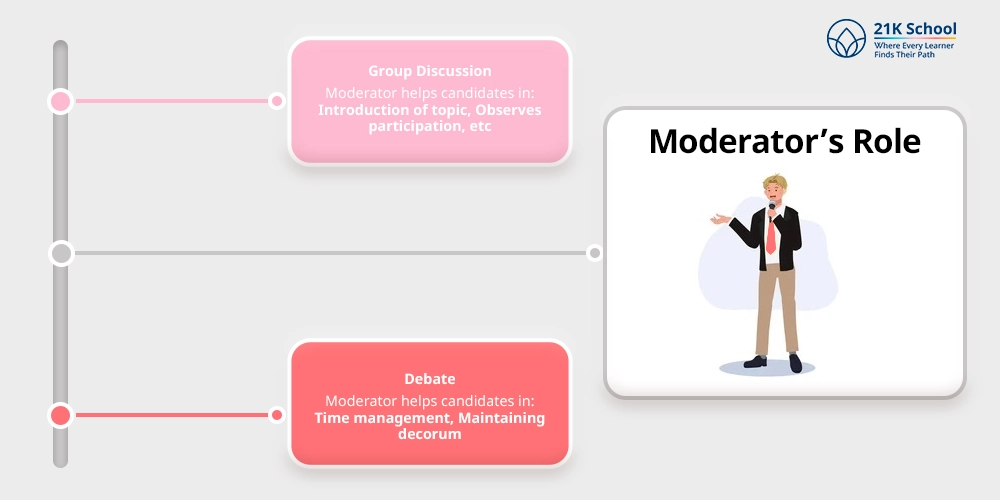
Group Discussion: Moderator helps candidates in:
- Introduction of topic
- Observes participation
- Summarise the discussion.
Debate:
Moderator helps candidates in:
- Time management
- Maintaining decorum
- Winner declaration.
Conclusion
Group discussion and debate are both important for learners to improve their communication and other skills.
The above mentioned top 10 points in table and detailed description on difference between group discussion and debate helps in understanding their right use.
As a parent or facilitator, effective implementation of these approaches reduces classroom learning challenges and ensures future growth.
In the end, mastering group discussion for cooperation and exploration and debate for persuasion and competition bring clarity in mind.

